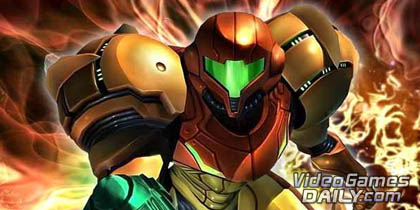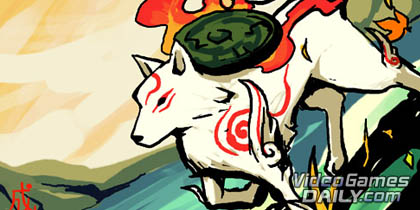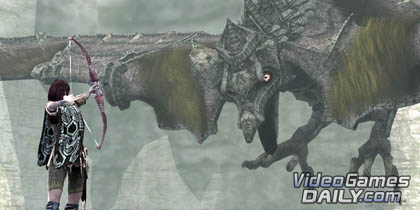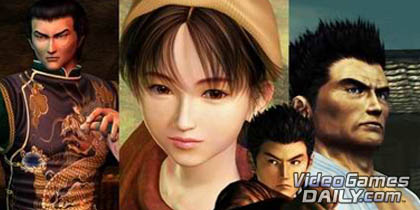
![]()
Metroid Prime
2003

Having confidently fitted Mario and Zelda with a Z axis, even Nintendo were reticent to bring the Metroid series into the third dimension until this decade. The idea of transposing Metroid’s sombre palette of exploration and loneliness into a genre as typically brash as the FPS drew an understandable amount of scepticism from fans, though the end product resulted in arguably the most faithful and authentic 3D re-imagining in gaming history. The antithesis of Nintendo’s primary coloured cartoon characters, Metroid Prime pushed the Cube hardware to create a mass of stunningly realised worlds, bustling with organic detail, imaginative creature design and wonderfully implemented effects. Pacing, item placement and level design were as tight as Super Metroid’s finest, with unintentionally speed run-encouraging sequence breaks offering a high-level challenge. Metroid Prime stands alongside Deus Ex, System Shock 2 and the Thief series as an advert for what can be achieved in the first person genre when you’re primary focus isn’t blowing stuff up. Prime is as unique an idea at the end of the decade as it was in the beginning with only its own sequels imitating it in any meaningful way.
![]()
Okami
2006

Clover’s animated painting is possibly the greatest advertisement for strong art direction in gaming today, as even after five years of being spoiled with HD bump-mapped screens awash with polygons, you’d be hard pressed to find a game as beautiful as Okami, and all running on Sony’s creaking decade-old console. Okami is a visual feast, bringing to life 1000s of years worth of Japanese legend using Ukiyo-e-style watercolour paintings for a look that is completely unique, with the beautiful brushwork textured by explosions of nature such as flowers and water features. In a lesser game the striking visuals might have been used as a crutch, but the creatively employed celestial brush mechanic allows you to alter this picturesque world by drawing bridges and paths, cutting your way through obstacles and even painting the setting sun to alter the time of day. The design is of such an incredibly high standard that you might expect it to be over all too soon, but it’s easily one of the biggest adventure games ever created, spanning at least 60 hours of unforgettable characters, stunning locations and epic encounters. Its length may be the only fly in the ointment, with pacing suffering as the game peaks and troughs repeatedly to keep momentum going, but this is a minor niggle and takes nothing away from the fact that this is a divine work of art worthy of the highest praise.
Further Reading: Review
![]()
Shadow of the Colossus
2005

If Ico courted the critics and opened their eyes to gaming’s potential as an artful medium, Fumito Ueda’s next game cemented the love affair with Sony’s perfectionist producer. While the relationship at the heart of Ico was the ultimate in minimalist boy meets girl love story, SotC opens with the grandest of gestures as Wander negotiates a deal with Dormin to revive the lifeless maiden Mono, as he unknowingly enters a Faustian pact that will tear his life apart. Few videogames elicit any emotion from the player beyond anger, though it doesn’t take long into SotC before you start to see beauty in the grotesque colossi and question your motives for slaying them so obediently. Long stretches of desolate land give you time for reflection as you start to lose your humanity with every colossus that falls. Moral introspection gives way to full-blown guilt as the gravity of your actions becomes clear, and by the end of the game, the consequences of your actions are so destructive and depressing that they carry an emotional weight that simply isn’t seen in videogames. Mechanically the game is far from perfect, but SotC is so much more than an open-world boss-rush game, standing instead as a tantalising glimpse at what videogames have the potential to be.
Further Reading: Review
![]()
Shenmue
2000

Yu Suzuki’s great unfinished symphony has become the stuff of legend as a hardcore of fanatics have had to deal with the harsh realisation that they may never get to exact revenge on Lan Di and see an end to the story. Sega’s (possibly anybody’s) most ambitious project at the time of release, Shenmue is a game that shattered the neat little idea of genre, encompassing the RPG, the fighting game, the racing game, the Die Hard Arcade-style QTEs, 80s arcade games, gambling, parlour games – the list is near endless. If Gran Turismo is the real driving simulator, Shenmue was the closest anybody had ever seen to the real life simulator, but as anybody with any experience of life will tell you; it’s not all milk and honey. For some the monotony of waiting for a bus or earning some Yen as a manual labourer was not what they played video games for – for others it was an unprecedented level of immersion that had never been seen before. The time you spent in 1980s Japan feels less like a game and more like anthropological field work, such is the huge amount of culture and history to soak up. For some the next generation arrived with GTA III, for others it was Oblivion – for me nothing else will have the impact of Shenmue and the seemingly infinite possibilities it offered.
Further Reading: Yu Suzuki Interview… and I think the less we tuck into our archives for Shenmue-related content, the better – Adam.






 Satoru Iwata Video Interview - the late Nintendo president spoke with Kikizo in 2004 as 'Nintendo Revolution' loomed.
Satoru Iwata Video Interview - the late Nintendo president spoke with Kikizo in 2004 as 'Nintendo Revolution' loomed. Kaz Hirai Video Interview - the first of Kikizo's interviews with the man who went on to become global head of Sony.
Kaz Hirai Video Interview - the first of Kikizo's interviews with the man who went on to become global head of Sony. Ed Fries Video Interview - one of Xbox's founders discusses an epic journey from Excel to Xbox.
Ed Fries Video Interview - one of Xbox's founders discusses an epic journey from Excel to Xbox. Yu Suzuki, the Kikizo Interview - we spend time with one of gaming's most revered creators.
Yu Suzuki, the Kikizo Interview - we spend time with one of gaming's most revered creators. Tetris - The Making of an Icon: Alexey Pajitnov and Henk Rogers reveal the fascinating story behind Tetris
Tetris - The Making of an Icon: Alexey Pajitnov and Henk Rogers reveal the fascinating story behind Tetris Rare founders, Chris and Tim Stamper - their only interview? Genuinely 'rare' sit down with founders of the legendary studio.
Rare founders, Chris and Tim Stamper - their only interview? Genuinely 'rare' sit down with founders of the legendary studio. The History of First-Person Shooters - a retrospective, from Maze War to Modern Warfare
The History of First-Person Shooters - a retrospective, from Maze War to Modern Warfare